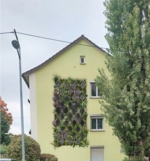-
Reduction of greenhouse gases in wine production - 31/08/2021

In the EU project REDWine, the CO2 produced during wine fermentation is captured and used to produce algae biomass. Novis GmbH from Tübingen supplies the complete system for CO2 utilisation. The aim of the project is to reduce the share of global warming caused by wine production in a way that is economical for producers.
https://www.biooekonomie-bw.de/en/articles/news/redwine-project-and-climate-change
-
Press release - 20/04/2021
Protecting the global climate is an undertaking that presents both industry and society with a major task. It will not be possible to achieve the climate targets simply by limiting global emissions, by saving carbon dioxide (CO2). This is because there will continue to be unavoidable CO2 emissions that will nevertheless have to be compensated.
https://www.biooekonomie-bw.de/en/articles/pm/cellulosefasern-gegen-den-klimawandel
-
-
-
Press release - 30/08/2023
Rising sea levels due to climate change and artificial irrigation cause soil salinity to increase. This has a negative impact on agriculture, including viticulture. The plants die, yields decrease. Researchers of Karlsruhe Institute of Technology (KIT) have therefore studied a wild grapevine of higher salt tolerance. Their goal is to identify the genetic factors that make the grapevine resilient.
https://www.biooekonomie-bw.de/en/articles/pm/soil-salinity-wild-grapevine-defends-itself
-
-
Dossier - 15/11/2019
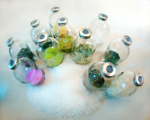
The negative image of plastic persists and is not getting any better in the face of the ongoing debate about microplastics which are basically everywhere. Plastic pollutes the environment. The globe is littered with huge quantities. We have to modify the production and utilisation of macroplastics as well as fundamentally rethink the way we dispose of them. ‘Out of sight, out of mind’ mentality must become a thing of the past.
https://www.biooekonomie-bw.de/en/articles/dossiers/waste-valuable-resource-wrong-place
-
-
Think Tank FYI: Agriculture 5.0 - 16/02/2023
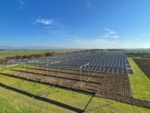
Climate protection, agriculture and biodiversity are closely intertwined. Agriculture 5.0 provides positive guidance, as the Offenburg University of Applied Sciences has demonstrated: agrophotovoltaics (or agrivoltaics), which is currently in vogue in Germany, can be used to generate solar power on high-yield fields. Biomass strips and biochar remove CO2 from the atmosphere. All this improves soil quality and promotes biodiversity.
https://www.biooekonomie-bw.de/en/articles/news/agriculture-50-fighting-climate-crisis-agrophotovoltaics-and-biochar
-
CRISPR/Cas9 and genetic engineering laws - 27/11/2019
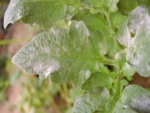
Plant geneticists from Tübingen have used genome deletion to breed a variety of tomato that is resistant to powdery mildew. The CRISPR/Cas9 technology that they used enabled them to achieve this in a relatively short period of time. They also demonstrated beyond any doubt that the new tomato variety contains no foreign DNA and is indistinguishable from naturally occurring deletion mutants.
https://www.biooekonomie-bw.de/en/articles/news/transgene-free-plant-breeding-using-genome-editing
-
Climate-friendly circular economy - 11/11/2021
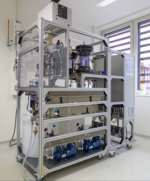
A Fraunhofer team has successfully produced a dye using CO2 adsorbed from the air. The aim is to move towards a climate- and resource-friendly circular economy. Chemicals, as well as fuels, can be produced cost-effectively using this process. How does the technical process work, and what opportunities does it open up?
https://www.biooekonomie-bw.de/en/articles/news/co2-air-raw-material-chemicals
-
Vaccination for plants - 23/01/2023
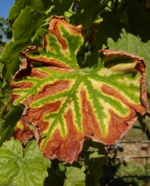
Climate change creates stress. This provides an opportunity for pests to exploit plant weaknesses and reproduce. For the infested plant, this can be catastrophic and often fatal. But instead of continuing to protect harvest yields with toxic substances as before, the transnational DialogProTec project is now taking a completely new approach: researchers want to intervene in the communication between plants and pests to keep them healthy.
https://www.biooekonomie-bw.de/en/articles/news/dialogue-instead-chemical-maze-new-strategy-sustainable-crop-protection
-
Press release - 23/02/2021
The European Commission agreed on the successor of BBI JU – the Circular Bio-based Europe Joint Undertaking (CBE JU) in a legislative proposal adopted today. The new partnership between the EU and the Bio-based Industries Consortium (BIC) is expected to build on the success of BBI JU while stepping up its contribution to the EU’s climate targets, in line with the European Green Deal. The European Parliament and Council will now study the…
https://www.biooekonomie-bw.de/en/articles/pm/commission-gives-green-light-successor-bbi-ju
-
-
-
-
-
-
Dossier - 17/11/2021
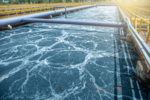
Sustainability is in vogue. And it’s not a question of wanting to be sustainable, but having to be: as the latest report from the Intergovernmental Panel on Climate Change shows, protecting the climate and the environment calls for swift action. Biorefineries that use renewable raw materials and recycle industrial raw materials are playing an important role in the bioeconomy concepts of many countries - including the state of Baden-Württemberg.
https://www.biooekonomie-bw.de/en/articles/dossiers/biorefinery-new-paths-build-our-tomorrow
-
Filament winding technology for sustainable construction - 06/04/2022

One of the greatest challenges in the construction industry is the transition to more environmentally friendly and resource-saving buildings. Researchers at the University of Stuttgart are combining state-of-the-art robotic filament winding technologies with ancient local crops to produce stable and sustainable lightweight structures from flax fibres.
https://www.biooekonomie-bw.de/en/articles/news/robotic-building-natural-fibres
-
-
Renaturalised peatlands as carbon dioxide stores - 14/06/2022
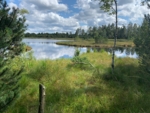
All intact peatlands on our planet store twice the amount of CO2 as all forests. Peatlands are indispensable for preventing and mitigating the effects of climate change. The only problem is that 95 percent of Germany's peatlands have been drained, and thus release around 7 percent of Germany’s total CO2 emissions into the atmosphere. Rewetting is therefore imperative for the climate, the environment and biodiversity – and economically…
https://www.biooekonomie-bw.de/en/articles/news/peatlands-climate-protection-factor-binding-co2-instead-releasing-it
-
-
Press release - 27/05/2021
The pulp of coffee beans is considered a waste product on coffee plantations, which is usually thrown away or dumped into rivers - with significant negative consequences for climate change and the environment. Macarena San Martín-Ruiz from the University of Stuttgart is working with Coopetarrazú, the largest coffee cooperative in Costa Rica, to find out how the mixture of pulp and husks can be turned into organic compost and thus protect the…
https://www.biooekonomie-bw.de/en/articles/pm/coffee-s-pulp-waste-becomes-organic-compost
-
Press release - 02/08/2021
Carbon dioxide is one of the main drivers of climate change – which means that we need to reduce CO2 emissions in the future. Fraunhofer researchers are highlighting a possible way to lower these emissions: They use the greenhouse gas as a raw material, for instance to produce plastics. To do this, they first produce methanol and formic acid from CO2, which they convert via microorganisms into building blocks for polymers and the like.
https://www.biooekonomie-bw.de/en/articles/pm/co2-raw-material-plastics-and-other-products
Website address: https://www.biooekonomie-bw.de/en/search

